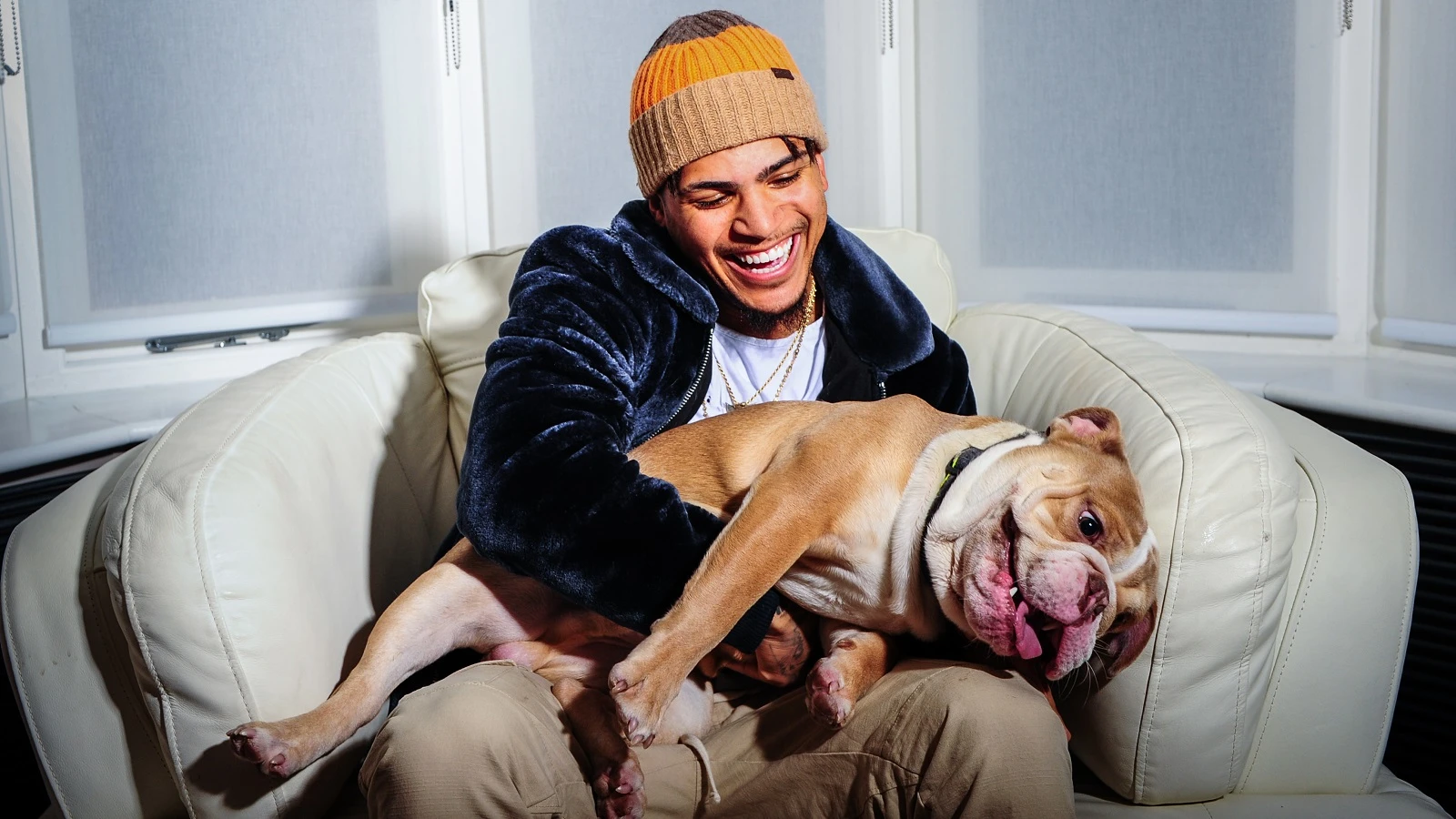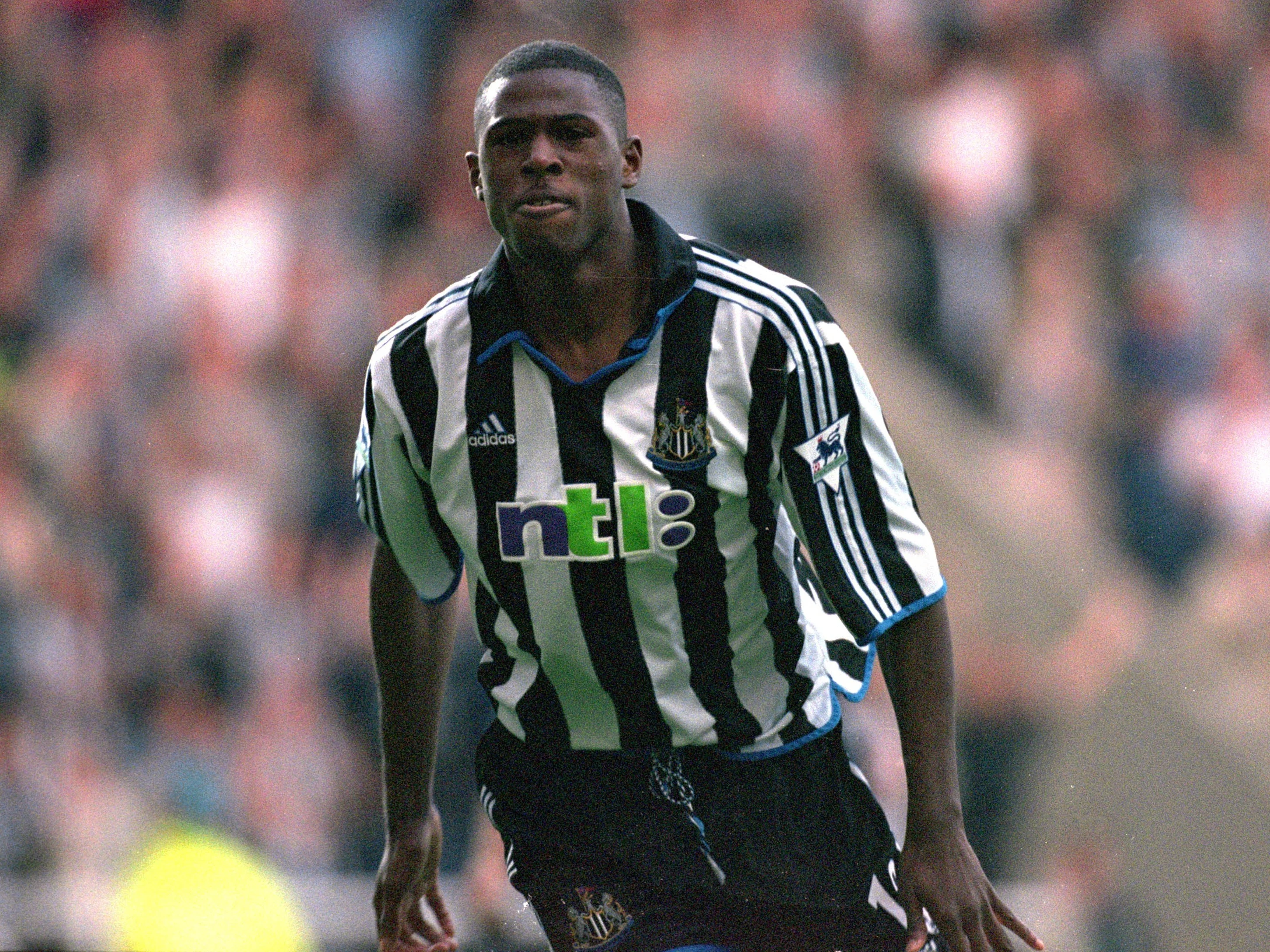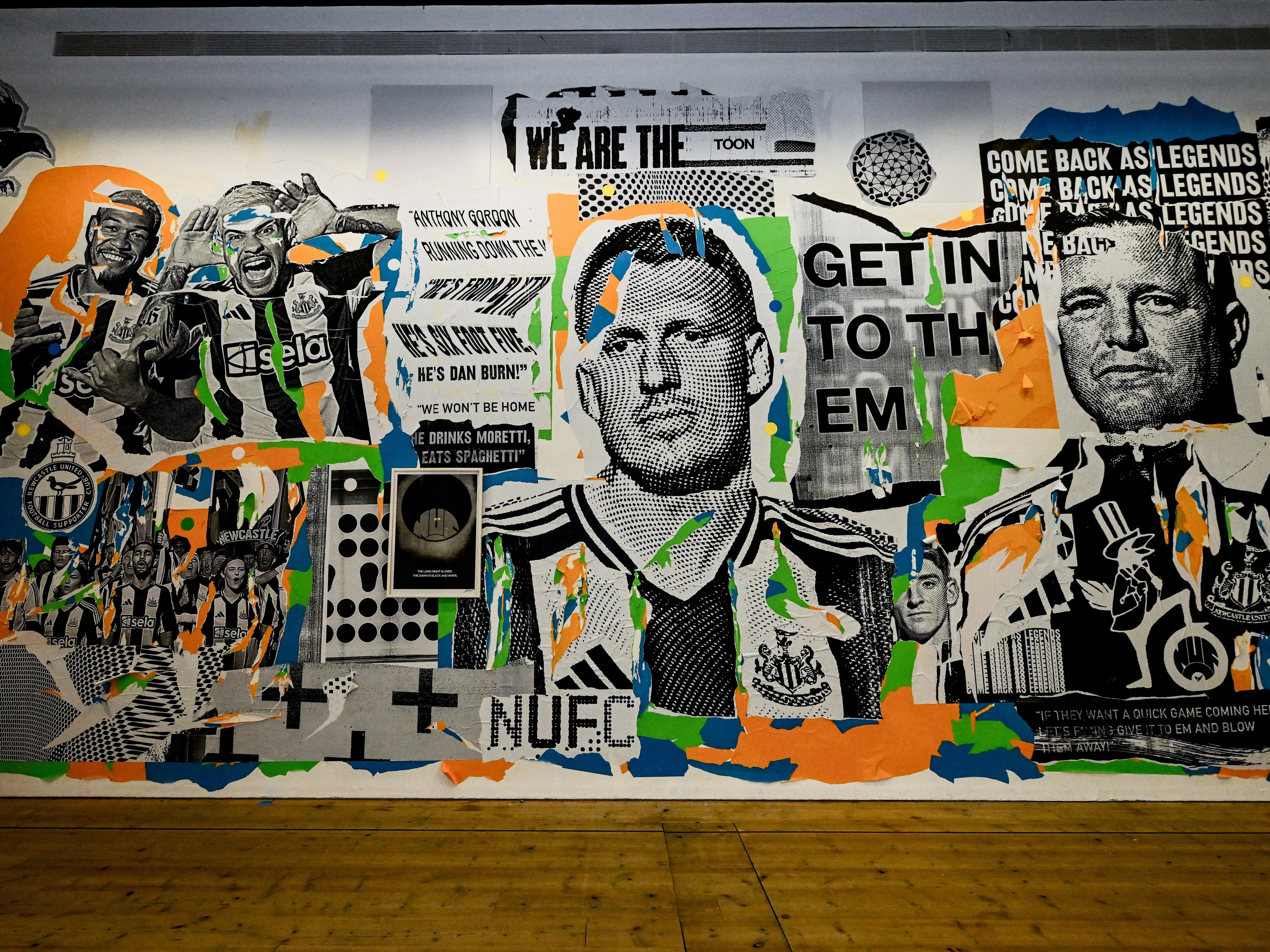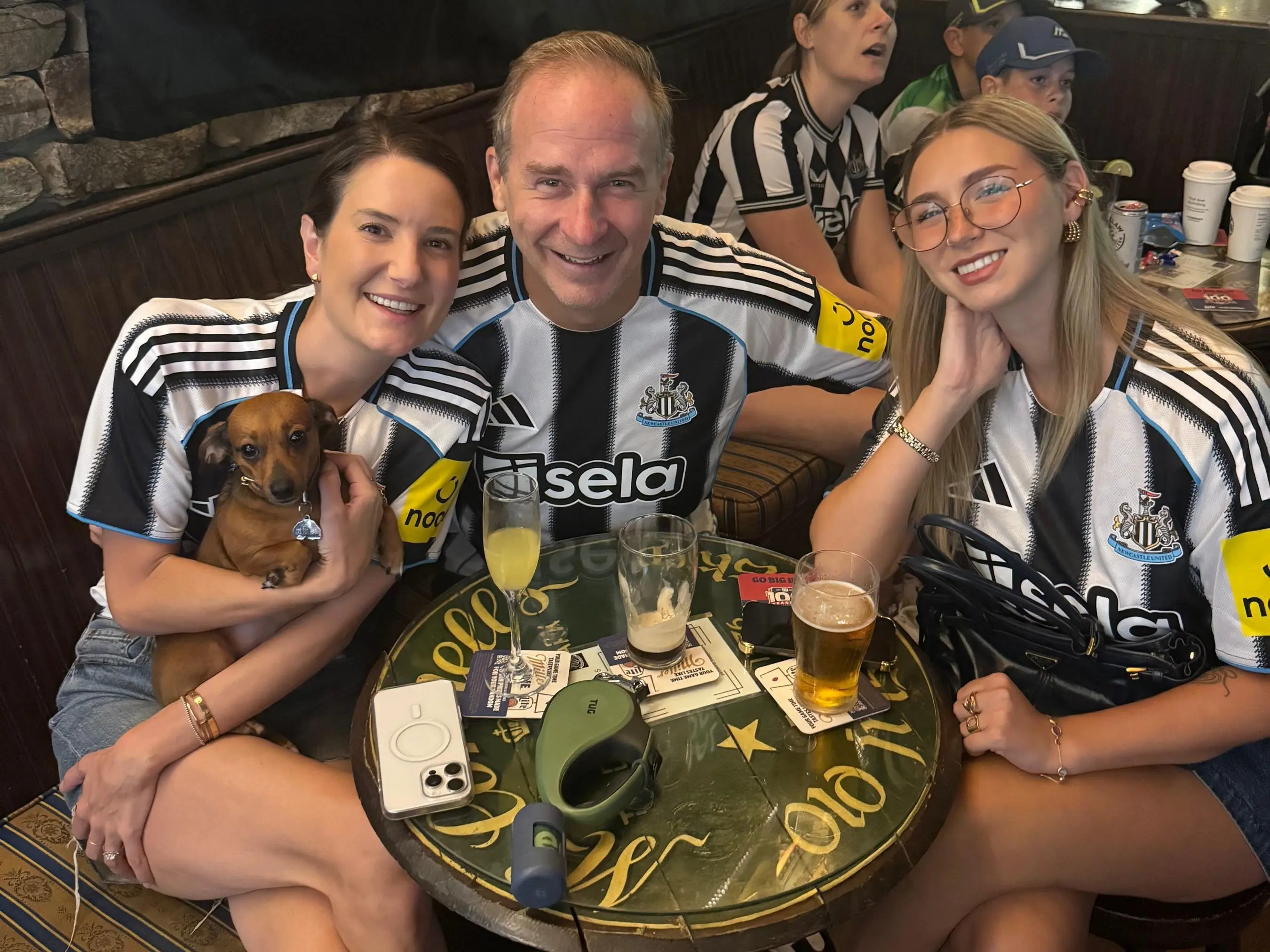Over the course of a few hours at his Jesmond home Yedlin changes outfits no fewer than six times, willingly playing up to the cameras as he offers an insight into another side of his personality. The American is a welcoming host, inviting UNITED into his befittingly lively house; his friends are talking and laughing in the kitchen, music is blaring and Simba, Yedlin’s English bulldog, is happily haring around after a ball.
Wearing a maroon turtleneck jumper and a beanie, Yedlin sits down in his armchair to discuss his love of fashion. His mother, Rebecca, was always into it, but Yedlin’s own interest began to develop at college. “We started going to thrift stores and just buying clothes off the rack,” he explains, straining to be heard over Simba’s jolly bark. “So we’d go in and find the best outfits we could make. I started to get a bit more into it and obviously when I turned professional and got a bit more money, I started to get better clothes.
“From there, it shot off. Every away trip in the States I’d get a GQ magazine and just read it and see what I could pick out of it. I got more and more into it, and I feel like that’s probably my second passion now.”
There is a large canvas on a wall in Yedlin’s open-plan kitchen, just around the corner from where he sits. One of the full back’s red USA shirts is attached to it, complementing a textured sepia design bearing his image. He has a genuine enthusiasm for such craft. “Drawing things, photography, building things… I used to love building things with Lego too. I know a lot of kids do, but I loved that. Do you guys have Lincoln Logs here?” he asks. “They’re little logs you can use to build buildings and things. My grandparents bought a lot in Arizona and I was young at the time, but I would try to draw things to help design the house and show them how I’d want the house to look.
“I was in a school that just taught you hands-on, so instead of learning out of textbooks, you’d go on field trips. You’d do a state history course about your state, which was Washington, and instead of reading about this city or that city, you’d go there and talk to the people. The way I’ve always learned has been hands-on, so I think it’s helped build that creative side to my character.”
That expressive trait has evolved further since he became a footballer. Before then, Yedlin dabbled with other sports at high school, playing basketball, baseball and American football, as well as soccer and wrestling. Blessed with great speed, he also ran track. “The funny thing is, I haven’t run since I was fresh from high school, 15 years old probably. I can’t even remember the times I got then,” he laughs. “But surprisingly there were actually some kids who were faster than me – there’s some fast, fast kids in the States!”
The path Yedlin took to the professional game is typically individualistic and vastly different to that taken by the majority of English players. He went from high school to college, through the country’s heavily-scrutinised development academy system and on to the University of Akron, Ohio, before his breakthrough at Seattle Sounders. “I got a taste of everything,” he reflects. “I got a taste of high school life, I got a taste of college life, and I left college when I was 19 so I was able to go professional and still be quite young. I think I grew a lot in high school and in college in ways I don’t think I would have grown if I’d just gone straight into football.
“I think that’s why a lot of the country (in the USA) kind of looks up to me a bit, I guess, or the kids at least – because I did it in that way. I went to high school, I went to college and now I’ve come over here and played. It’s a bit of an interesting route, but it gives a lot of kids hope. It’s nice to have people look up to you and kind of create a new path for kids who maybe thought they couldn’t get there.”
Something of a trailblazer for young players in his homeland, Yedlin is a successful export from a nation where football – or soccer – has grown rapidly since he was a child. He gained international attention at the 2014 World Cup and agreed a move to Tottenham Hotspur that summer, arriving in London in January 2015.
How did he find his first few seasons in England? He puffs out his cheeks. “Man, they were definitely years in which I grew a lot. I think that’s priceless, you know? You can’t pay for growth or experience. Those years will help me throughout my whole life – not just in football but in my whole life. I’m obviously thankful for them.
“At times it was really tough. At times I was contemplating ‘should I just go back to the US and start a new career there?’ I didn’t really have my family there and I didn’t know a lot of people there. But things become a bit easier.
“One of the reasons that I really told myself ‘no, I need to stay here’ is that I’d come so far. Just because of a bad six months or a bad year, I’m not just going to throw it all away. Also, it’s not to prove the people who don’t believe in me wrong, but it’s to prove the people who do believe in me right. To prove to my grandparents and my family and all my friends – they always told me I could do it. I think that’s far more important than proving the haters wrong.”
He dug in and found his way, via Sunderland, to St. James’ Park in 2016. Rafa Benítez felt he could work with a player in whom he saw “an attacking mentality, ability and great pace”. He won the Championship in his first season, playing 32 games and making almost as many changes to his hairstyle.
Yedlin had hoped he would be boarding a plane to Russia next summer for what would have been his second World Cup. But the USA didn’t make it. They were beaten by Trinidad and Tobago in their final qualifier in October, handing the last qualification spot to Panama and a play-off spot to Honduras.
His hurt is clear. “It was extremely tough. It’s one of those times that you can say, ‘we’ll put it behind us, we’ll put it behind us’, but it will always be there,” he admits. “It’s very hard to put behind you. In your career, you can only go to a World Cup maybe three or four times, so it’s hard to miss out on it.
“But people sometimes miss out on big opportunities, and they have to get over it. All we can really do now is look towards 2022, and prepare the best we can and make sure that the mistake that we made doesn’t happen again.”
Borussia Dortmund’s Christian Pulisic – Yedlin’s international teammate – wrote an impassioned piece for the Players’ Tribune after the failure to qualify, part of which centres on the 19-year-old’s belief that there is a lack of opportunity for young American players. “I thought he was spot on. I thought what he said was spot on,” asserts Yedlin. “Coming from a kid who notices the problem, especially with youth soccer and the way we’re developing kids in America, the fact that he can see it at such a young age is pretty telling. It shows that I think a change does need to be made.
“We’ve seen that young players, especially American players, are being put on the bench in MLS. They’re taken out of college, so they’re not going to have an education, and they’re just being put on the bench. Then, say they don’t play for a year, it’s tough. Then maybe you have to go to the second division in America, or stuff like that.
“I think that players need the opportunities. Look at England – there are a lot of young English players who are doing well, because they’ve been given a chance at such a young age. I definitely think that kind of policy needs to be implemented in the US.”
This side of the Atlantic is now Yedlin’s home. His family flew out to be with him at Christmas, and many will stay with him until the middle of January. Match tickets are a popular present and, with his grandparents retired and at a “fun time of their lives”, he likes to help them to see a bit more of the world. “I didn’t realise it as much until I got here how much of a family guy I am, and how much I need to be around them. As I’ve grown into my career here it’s become a lot easier, and we’ve worked out a little tradition.”
In the New Year, Yedlin will have a new venture to occupy his free time. He is planning to launch a new fashion line, called Roselle – his middle name – in January. “It should be fun. It’s a nice thing to do on the side, but the thing I like about it is that it just allows me to be creative and to be who I am,” he says. “Sometimes you’re judged by the media and things like that for things you do off the pitch or stuff that you wear, but I think that the idea of the line is that I can put myself into the clothes. I’m excited about it.
“All my clothes will be manufactured in the States, in LA. I think it’ll be good. Because I have a big profile in the States, I think I’ll be able to get it out to a lot of people and hopefully to some celebrities and people that I know, and hopefully it’ll grow over here and get big. That’s the plan.”
Forgetting about his ball for a moment, Simba bounds round the corner into the lounge to greet his owner as he addresses the present. This is Yedlin’s first Premier League campaign with Newcastle, and one he feels is critical for him. “It is quite a big year,” he says. “It’s probably one of the most important years of my career.”
There is, of course, much more to Yedlin than just football, and it feels merely routine to touch upon his outlook for the remainder of the season before he consults his wardrobe once more. But still, the game remains a big part of the colourful make-up of the Magpies flier, a man who is more than happy to stand out from the crowd.
“It’s kind of one of those seasons where anybody can beat anybody, but I think people look at us as one of those teams they don’t expect to beat a lot of teams,” he says. “But anybody can beat anybody. We can go out there and give teams a great game as well. That’s what we try to do, week-in, week-out.
“We’re going to have our downs and we’re going to have our ups. My college coach once told me to keep your highs low and your lows high. We’ve just need to make sure we keep that balance until the end of the year, and see what happens.”




